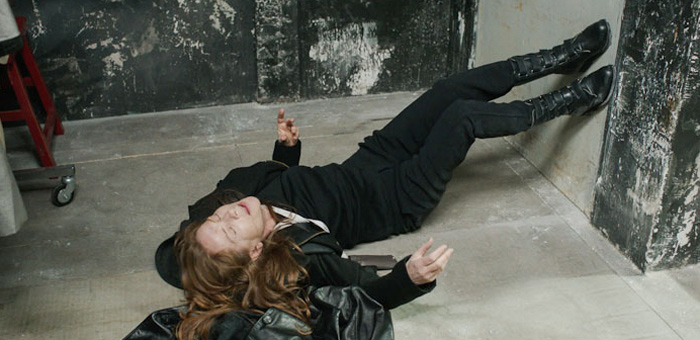Abuse of Weakness review
Any interest I found in Abuse of Weakness – aside from being impressed yet again by how remarkable an actress Isabelle Huppert is – derived from knowledge I took into the film of similarities between the events depicted and to things that actually happened to director Catherine Breillat.
This sort of contextual interest is an intriguing subject that I often wrestle with when it comes to reviewing films that are somehow improved or made worse by knowledge of this outside information. Many may not know about this back story and after all, the film is the thing.
In this case it is intriguing because the external choice of Breillat to turn her real life into a film is perhaps the only interesting part about the film, the closest it ever comes to being compelling.
To summarise, in 2007 Breillat met confidence trickster Christophe Rocancourt, just three years after she suffered a stroke. Breillat reportedly gave Rocancourt €678 000 in loans and later, in a book entitled Abus de faiblesse (Abuse of Weakness) she accused him of scamming her out of the money and taking advantage of her. He was later convicted of Abus de faiblesse and sentenced to eight months in prison.
These real life events form the basis of the story in Abuse of Weakness, but to these simple facts Breillat adds very little. The conman here is Vilko, played with swagger but not a hell of a lot of character by Kool Shen, who Maud (Huppert) first sees on TV whilst recovering from a stroke and then lets further and further into her life.
Vilko is boorish and one dimensional and it’s never entirely clear why Maud is so enraptured by him, especially as his conning of her escalates and becomes more and more obvious. There’s an odd implausibility to it, considering the true story behind it, but this derives from Breillat never letting us into the story or into Maud’s mind.
We are distant observers to this icy and flat story, which climaxes with an emotional breakdown from Huppert’s Maud – again beautifully acted – that thanks to an hour and a half of disconnection just comes across as melodramatic, out of nowhere and a completely unearned emotional denouement.
This review was originally posted at Bleeding Cool.
